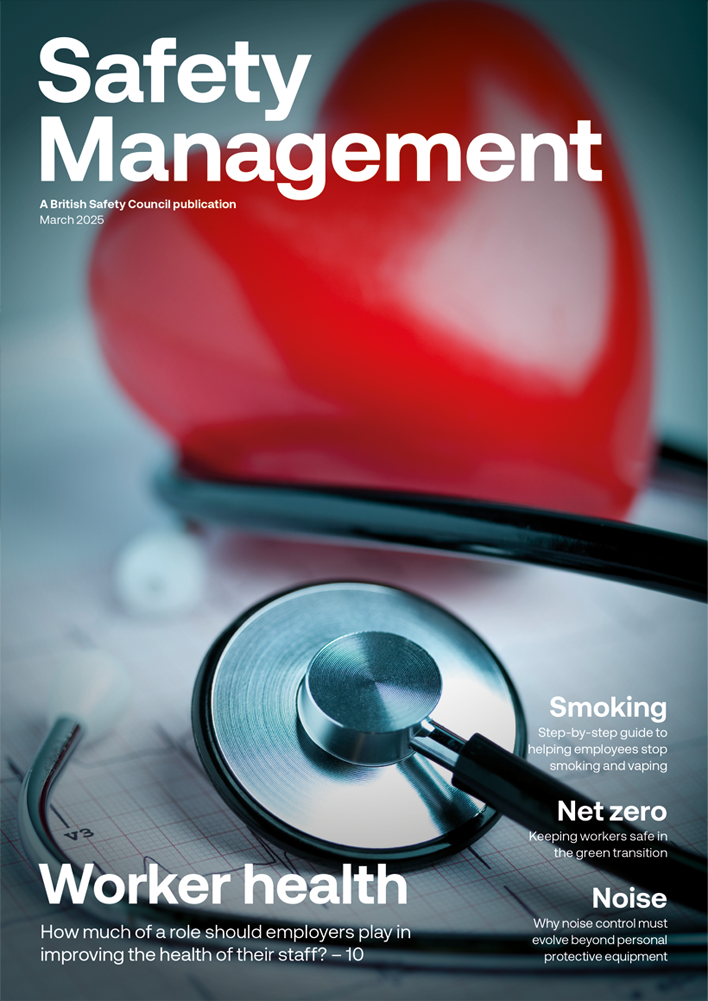A new Parliamentary Bill drafted by the Stop Hurt at Work campaign and introduced by Rachael Maskell MP aims to make it easier for people who experience bullying at work to seek redress through an employment tribunal.
Opinion
Why we need a new law to protect people from workplace bullying
Many people are quite surprised when they discover that workplace bullying is not defined in law in the UK. Part of the problem is that the terms harassment and bullying are used interchangeably in our language, and yet they have quite different treatment in the law.
In cases where bullying behaviours are linked to the protected characteristics of age, race, religion or belief, sex, pregnancy and maternity, sexual orientation, gender reassignment, marriage and civil partnership, and disability, this is harassment which is clearly defined in the Equality Act 2010, as: “unwanted conduct related to a relevant protected characteristic, which has the purpose or effect of violating an individual’s dignity or creating an intimidating, hostile, degrading, humiliating or offensive environment for that individual”.
 Nicki Eyre: "There is often an assumption that bullying must be covered by health and safety law as a result of the duty of care established for employers to provide a safe workplace and a safe system of work. In reality, it is more complicated."
Nicki Eyre: "There is often an assumption that bullying must be covered by health and safety law as a result of the duty of care established for employers to provide a safe workplace and a safe system of work. In reality, it is more complicated."
Cases can be brought to an Employment Tribunal for harassment, discrimination and victimisation. The claimants are also able to remain in their employment while bringing forward a case and can claim for injury to feeling.
As previously mentioned, there is not currently a legal definition of workplace bullying. For non-discriminatory claims, the options available under UK law are to use either employment law or civil law.
To use employment law, employees need to voluntarily resign from their post and bring an unfair dismissal claim to the employment tribunal, usually on the basis of a breakdown in the “relationship of mutual trust and confidence”. Any awards are limited to reinstating them to the financial position they were in if they had not left their role. However, this route can only be used if they have at least two years of service with their employer.
Alternatively, if they are able to prove that they have a psychiatric injury, they are able to bring a personal injury claim through civil law.
However, this leaves gaps in the law. According to Jessica Rowson, director and head of psychiatric injury at Oakwood Solicitors: “If someone is subjected to workplace bullying, with no identifiable motive connected to a protected characteristic, they don’t resign in response to the conduct, and they do not suffer a recognised psychiatric illness, there is no direct legal recourse as the law currently stands.”
There is often an assumption that bullying must be covered by health and safety law as a result of the duty of care established for employers to provide a safe workplace and a safe system of work. In reality, there is yet to be a real shift to prevention for psychiatric injury and mental health, meaning that the issue of foreseeability is often used as a defence. It is complicated, and even the new international standards on psychosocial risk are only a voluntary code of practice.
As someone who has been bullied and understands the physical, psychological and economic consequences first-hand, it is fair to say that I was not aware of the choices available to me through the law, nor the limitations. The policies and procedures had already failed me, and now the law. I walked away with a settlement agreement with absolutely no idea about the length of time recovery would take. Part of that recovery was learning about what had happened; to me, to my health; and understanding the flaws in the systems that allow this to continue time and time again.
 Conduct Change have partnered with Speak Out Revolution, who are an award winning non-profit on a mission to cancel the culture of silence on workplace harassment and bullying. Photograph: iStock
Conduct Change have partnered with Speak Out Revolution, who are an award winning non-profit on a mission to cancel the culture of silence on workplace harassment and bullying. Photograph: iStock
That’s when I started working with a group of advisors to bring to life the Conduct Change social purpose to educate, raise awareness and campaign about workplace bullying. We have also partnered with Speak Out Revolution, who are an award winning non-profit on a mission to cancel the culture of silence on workplace harassment and bullying.
They host the open source Speak Out Dashboard collating global experiences of workplace harassment and bullying to empower individuals and organisations to take positive action for safer, more respectful workplaces, and are proud supporters of the #StopHurtAtWork campaign to have workplace bullying recognised in law and make workplaces psychologically safer.
Marie Hemingway, CTO of Speak Out Revolution, says: “It’s clear from the thousands of reports made to Speak Out Revolution, there is a direct link between the culture of silence on workplace harassment and bullying and devastating preventable harm to individuals’ health and organisational safety.”
Through a specialist Legislation Working Group set up by Conduct Change for the Stop Hurt at Work campaign, the gaps in legislation have been explored, leading to proposed changes that would ensure that non-discriminatory bullying claims achieve equity with harassment claims in a tribunal.
This proposal was further extended by Rachael Maskell MP to create the Bullying and Respect at Work Bill, which was introduced into the House of Commons on 11 July 2023.
The Bill’s summary states it is: “A Bill to provide for a statutory definition of bullying at work; to make provision relating to bullying at work, including to enable claims relating to workplace bullying to be considered by an employment tribunal; to provide for a Respect at Work Code to set minimum standards for positive and respectful work environments; to give powers to the Equalities and Human Rights Commission to investigate workplaces and organisations where there is evidence of a culture of, or multiple incidents of, bullying and to take enforcement action; and for connected purposes.”
We know that legislation is only part of the solution, and primarily acts as a deterrent, or to provide consequences for those employers who do not prevent harm through bullying for their employees. There is so much more that can be done before reaching this stage, at both an organisational and an individual level.
The real responsibility for the prevention of workplace bullying lies within all of us.
For more information see:
conductchange.co.uk/stophurtatwork
@Conduct_Change
linkedin.com/company/stophurtatwork
speakoutrevolution.co.uk
bills.parliament.uk/bills/3488
Nicki Eyre FRSA is founder & managing director at Conduct Change Ltd and founder of the Stop Hurt at Work campaign.
OPINION

Why electric cooking is the future we need
By Tushar Nair, Global Cooksafe Coalition on 01 April 2025
The way we cook is more than just a matter of taste and convenience – it’s a critical climate, health, safety, and economic issue. Despite the growing momentum toward building electrification, cooking remains one of the last strongholds of fossil fuel reliance in our homes and commercial kitchens.

Beyond compliance: why noise control must evolve beyond PPE
By Gill Cussons, Noise & Vibration Solutions on 13 March 2025
Engineering solutions for noise control on plant, machinery and tools are often straightforward, low-cost and bring financial savings themselves, so it’s time employers moved away from the default position of purchasing and issuing personal hearing protection to workers.

Navigating a changing world
By Mike Robinson FCA, British Safety Council on 03 March 2025
Human history has hung on a timeline of change and every generation has been asked to answer the same call, to adapt and evolve. From the printing press to the PC, change has continuously re-defined both the work we do and how we do it. Where the future differs from the past is the pace at which change will impact society.



